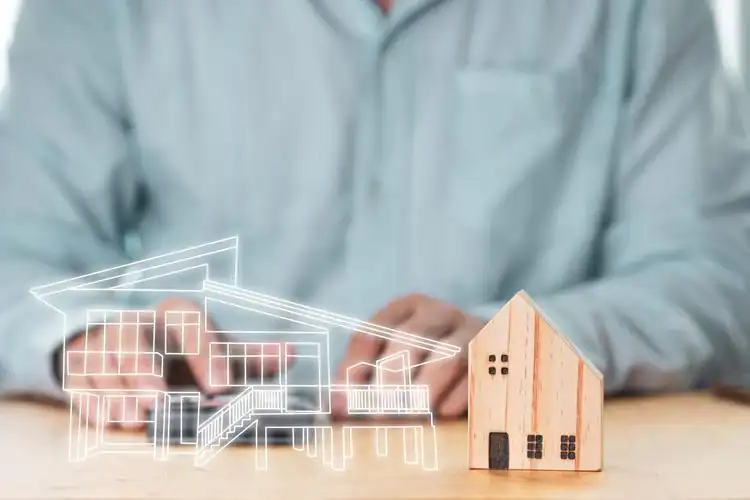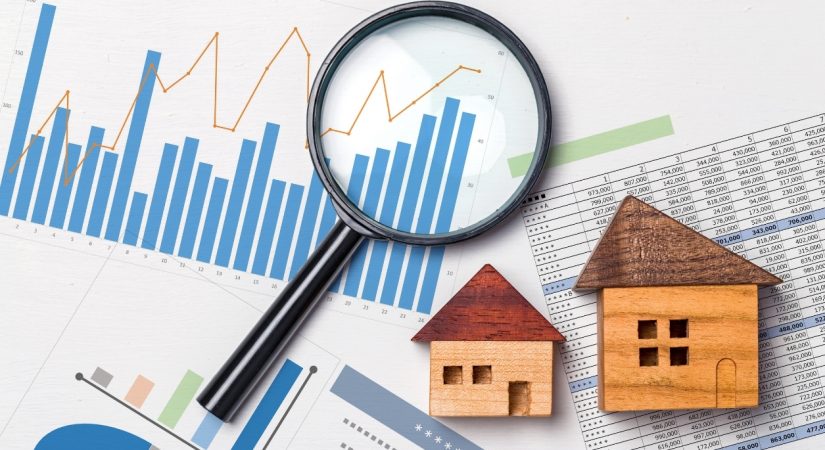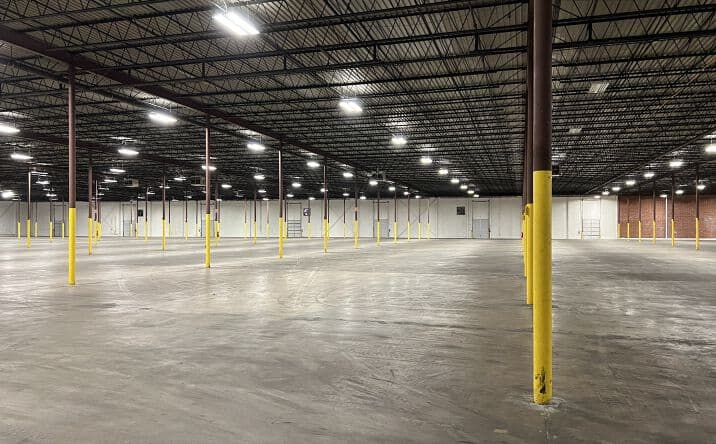The world of real estate is changing faster than ever. For centuries, owning physical land and buildings was the main way people invested in property. But today, a new kind of property has emerged — virtual land inside the metaverse. The metaverse is a growing digital universe where people can meet, work, play games, socialize, and create new experiences, all inside virtual spaces. Just like real-world land, these virtual spaces can be bought, sold, and developed. This new market of virtual land is booming worldwide and attracting investors from all regions, including the Arab world.
However, as the market grows, it faces challenges. Virtual land is spread across many different platforms, each with its marketplace, making it difficult to find, compare, and trust listings. This is where the concept of a Multiple Listing Service (MLS) for metaverse land assets becomes vital. An MLS acts as a single trusted platform to list and trade virtual land, simplifying the process for buyers and sellers.
In this article, we will explore what metaverse land is, what MLS means in this context, why it is important for the Arab world, and how it can shape the future of virtual real estate in the region.
Understanding Metaverse Land

The metaverse is an interconnected network of 3D virtual worlds accessible through the internet. Imagine putting on a virtual reality headset or opening an app where you can walk around, interact with others, attend events, and explore digital cities. Within these metaverses, land is divided into parcels or plots, similar to city blocks or property plots in real life.
Each piece of metaverse land is unique and is owned as a digital asset secured on a blockchain, typically as a Non-Fungible Token (NFT). NFTs are special digital tokens that prove ownership of unique items, whether art, music, or in this case, land. This blockchain technology ensures that ownership is transparent, secure, and cannot be duplicated or forged.
Virtual land can be used for many purposes. Owners can build virtual shops, event spaces, galleries, and gaming arenas, or even rent them out. Businesses use metaverse land to advertise and connect with customers in new ways. Individuals buy it as an investment, hoping its value will grow as more people join the metaverse.
What is MLS and How Does It Apply to Metaverse Land?
In the traditional real estate market, an MLS (Multiple Listing Service) is a centralized database that allows real estate agents and brokers to share detailed listings of properties for sale. It improves transparency and efficiency by providing buyers with access to comprehensive information on many properties in one place, and by helping sellers reach a wider audience.
In the metaverse, the idea of MLS is new but growing in importance. Because virtual land exists across many different platforms, each with its marketplace, finding the right land to buy can be confusing and time-consuming. Some buyers may miss better opportunities simply because they don’t know where to look.
An MLS platform for metaverse land collects all available land listings from various metaverse platforms and displays them in one place. It provides detailed, verified information about each plot, including:
- Its exact virtual location
- Size and dimensions
- Ownership and transaction history
- Price and payment options
- Unique features or development potential
This system makes it easier for buyers to find, compare, and trust virtual land listings, while sellers benefit from wider exposure and quicker sales.
Why the Arab World Needs MLS for Metaverse Land
The Arab region is witnessing a rapid digital transformation. Governments and private sectors in countries like the UAE, Saudi Arabia, Bahrain, and Egypt are actively promoting blockchain, digital currencies, NFTs, and the metaverse. Many Arab investors, entrepreneurs, and tech enthusiasts are eager to explore opportunities in virtual real estate.
However, the metaverse market is still young and fragmented. The lack of a unified platform creates challenges:
- Lack of transparency: Without a trusted MLS, buyers may face fake or unclear listings, risking fraud.
- Limited market access: Buyers need to visit multiple marketplaces to find land, making it hard to spot the best deals.
- Difficulty in price comparison: Virtual land prices vary across platforms and locations, complicating valuation.
- Challenges in verification: Confirming ownership and sale history is difficult without centralized data.
For the Arab market to fully benefit from metaverse land investments, these issues must be solved. An MLS platform can provide:
- Trust and security: By using blockchain verification, MLS ensures each listing is authentic.
- Convenience: Buyers can browse virtual land from different platforms in one place.
- Market transparency: Clear pricing and ownership history build confidence.
- Market growth: Easier access and trust attract more investors, developers, and businesses.
In addition, Arab governments’ support for blockchain innovation creates an ideal environment for launching MLS platforms focused on virtual land, helping position the region as a leader in the digital real estate revolution.
How Does MLS for Metaverse Land Work?
A metaverse land MLS functions as an aggregator and organizer of land listings across multiple virtual worlds. Here is a simplified look at how it works:
- Collecting Listings: The MLS platform gathers land listings from different metaverse projects like Decentraland, The Sandbox, Cryptovoxels, and others. It uses APIs or direct partnerships to pull accurate, up-to-date listings.
- Verification: Using blockchain data, the MLS verifies ownership of each plot and tracks its transaction history. This prevents fake or duplicated listings.
- Standardized Information: The platform organizes data into a standardized format, allowing users to easily compare plots by size, location, price, and features.
- Search and Filters: Buyers can search land parcels by their preferences, such as price range, virtual neighborhood, or plot size, just like searching for a physical home.
- Transactions: When a buyer chooses a land parcel, the MLS often integrates with blockchain wallets and marketplaces to enable a smooth purchase or auction process.
- Support and Education: MLS platforms may also provide market insights, legal guidance, and educational content to help users understand metaverse land investment.
Benefits of MLS for Arab Investors and Developers
The Arab real estate market is already strong and well-established. Introducing MLS for Metaverse Land brings several unique benefits:
A. Expanding Investment Opportunities
Virtual land is a new asset class that can diversify investment portfolios. Arab investors who understand and trust MLS platforms can safely explore this emerging market. The ability to compare listings across platforms increases the chances of finding profitable deals.
B. Encouraging Innovation and Development
Developers and businesses can use MLS platforms to find strategic land locations in the metaverse. This encourages creative projects such as virtual malls, cultural centers, and entertainment hubs that can cater to Arab users and beyond.
C. Building a Digital Economy
With more virtual land trading and development, the Arab region can build a vibrant digital economy that complements traditional sectors. This can create jobs, stimulate entrepreneurship, and enhance the region’s global tech reputation.
D. Reducing Risk and Fraud
The blockchain-based verification in MLS reduces risks of scams and fraud. Buyers have confidence that their ownership rights are clear and legally secure.
Challenges and Considerations
While MLS for Metaverse land offers many advantages, some challenges remain:
- Interoperability: Different metaverse platforms use distinct technologies, making integration complex.
- User Education: Many Arab users are new to NFTs and blockchain, so education on how MLS and virtual land work is vital.
- Regulation: Governments need clear policies on virtual assets to protect consumers without stifling innovation.
- Market Volatility: Virtual land prices can be highly volatile, requiring investors to be cautious.
The Future of MLS and Metaverse Land in the Arab World
The future looks promising. As virtual worlds grow and more Arabs participate in the metaverse, MLS platforms will become essential tools. These platforms will help organize the market, build trust, and unlock the true potential of virtual real estate.
Governments are already showing interest in supporting metaverse projects and blockchain technologies. With ongoing investments in digital infrastructure and smart cities, virtual real estate and MLS systems could become integrated with real-world urban development.
Arab entrepreneurs and tech companies have a chance to lead the creation of local MLS platforms tailored to the region’s needs. This will help Arab users navigate the global metaverse market confidently.
Conclusion
The metaverse is opening a new chapter in real estate — one where land exists as unique digital assets in virtual worlds. For the Arab world, embracing this new frontier can bring exciting opportunities for investment, innovation, and economic growth.
However, to succeed, the market needs tools that make buying and selling virtual land safe, transparent, and efficient. MLS platforms for metaverse land assets fulfill this need by providing a centralized, trusted marketplace that integrates listings across different virtual worlds.
By supporting and adopting MLS for metaverse land, the Arab region can position itself as a pioneer in digital real estate, benefiting from the metaverse’s growth while protecting investors and users.
If you are an investor, developer, or enthusiast in the Arab world, now is the time to learn about virtual land and how MLS platforms can open doors to this exciting new market.













